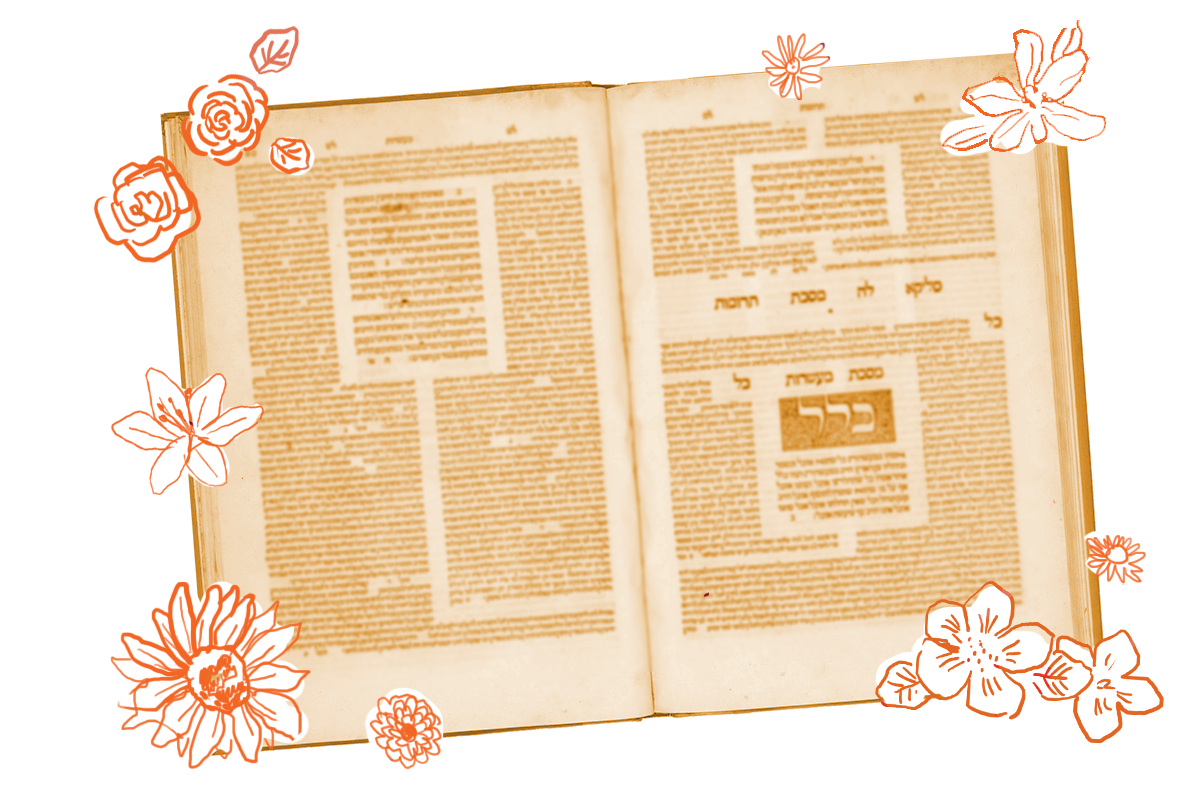As we saw on the first page of our tractate, Hillel and Shammai disagree about whether it’s permitted to eat an egg laid on a festival. The Gemara has since established that such an egg is in fact prohibited. But on today’s daf, we find a teaching from Rav Mari that implies the opposite:
If one examined a chicken’s nest on a festival eve and did not find an egg in it, and the following day, on the festival, he rose early and found an egg in it, the egg is permitted.
In this case, the egg was clearly laid overnight after the festival began — shouldn’t it be forbidden? It seems Rav Mari has some zoological data to support his position:
The sages taught: Any species whose intercourse occurs only in the hours of the day is born only by day.
The Gemara explains: This refers to a chicken.
According to the rabbis, chickens mate and lay eggs only during the day. So in Rav Mari’s case, we must assume that the egg was laid the previous day and not overnight (i.e. on the festival), since that is the normal behavior of chickens. Based on this logic, an egg found before dawn on a festival is permitted because we assume it was laid the previous day — not overnight during the festival.
But didn’t Rav Mari’s case involve a person who checked the nest before the festival and didn’t find an egg? Doesn’t that imply it was laid overnight?
No, says the Gemara. Perhaps the person checked poorly and did not see the egg. Or perhaps we are dealing with a case where the chicken partially laid the egg during the day, but it was taken back up by the bird, which is why it was not found.
Can this really happen? We have a source that says so:
An egg, most of which emerged from the chicken on a festival eve, and the egg returned inside the mother (and was finally laid on the festival itself), it is permitted to eat this egg on the festival.
So Rav Mari’s teaching holds up: Even if one checked and found no egg on a festival eve, one can assume an egg found in the early morning was laid (or half-laid) the previous day and is therefore permitted.
Awesome. Any further objections? Well, yes.
Rabbi Yosei ben Shaul says that Rav said: If one examined a chicken’s nest on a festival eve and did not find an egg in it, and the following day he rose early and found an egg in it, it is prohibited.
Rabbi Yosei ben Shaul takes the opposite position from Rav Mari, ruling that the egg must have been laid overnight and is therefore forbidden. How can this be? Didn’t we just learn that chickens only lay eggs during the day?
Not exactly, says the Gemara. Rabbi Yosei ben Shaul is talking about unfertilized eggs. Since the chicken did not mate before laying the egg, we can’t rely on the general principle about chickens mating and laying eggs only during the day.
How do we know that the eggs in Rav Mari’s case weren’t also unfertilized? From some additional zoological information:
Ravina said: It is learned that anywhere that a male is present, a chicken does not lay unfertilized eggs. Until where (i.e. how close does the male need to be for this principle to hold)? Rav Gamda said in the name of Rav: Any place where the hen can hear its voice by day.
According to Ravina, if a hen hears a rooster crowing during the daytime, it will refrain from laying unfertilized eggs — or in the literal language of the Gemara, the chicken “does not absorb from the ground.” Therefore, if a rooster is in the vicinity, we can be sure that any eggs found were fertilized and laid during the day. And if one such egg were found on the morning of a festival, even if the nest had been checked and found to be empty before the festival started, we can assume the egg was laid during the previous day and it is permitted on the festival, just as Rav Mari taught. But if there is no rooster in the vicinity, we cannot assume that the egg was fertilized and laid during the day and the egg would be prohibited to eat on the festival.
The rabbis lived much closer to chickens than most of us and they drew from that knowledge to determine matters of Jewish practice. So not only is the Talmud a resource that helps us understand if we can eat an egg that was laid on a festival, it also gives us insight into how the rabbis understood animal behavior.
Read all of Beitzah 7 on Sefaria.
This piece originally appeared in a My Jewish Learning Daf Yomi email newsletter sent on September 7th, 2021. If you are interested in receiving the newsletter, sign up here.
The post Beitzah 7 appeared first on My Jewish Learning.




